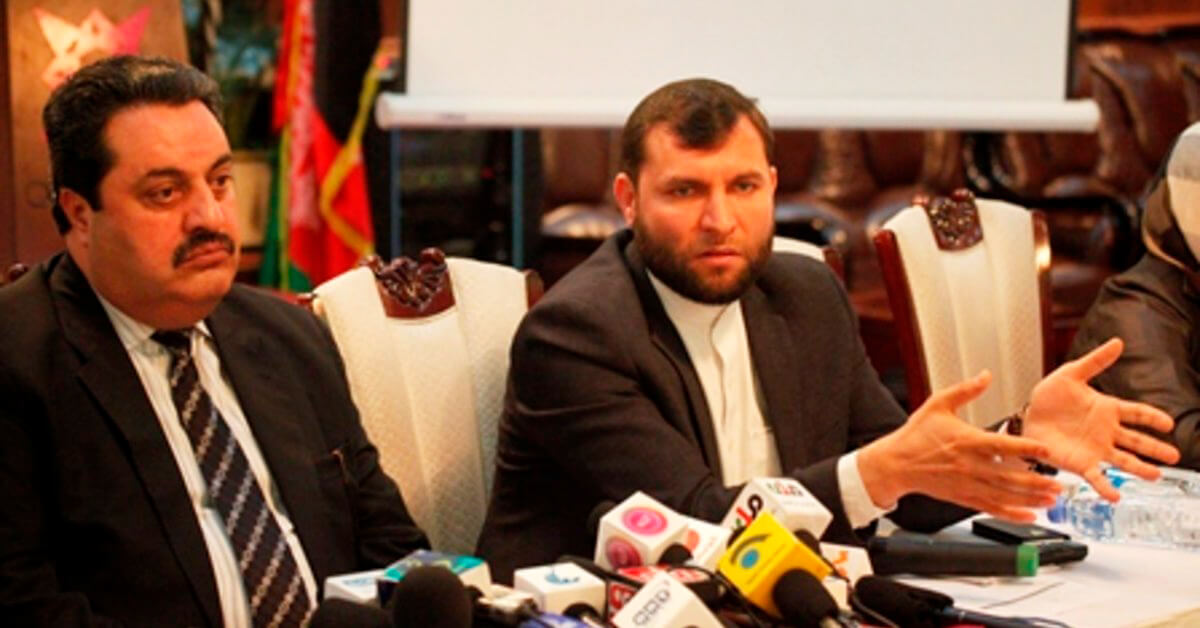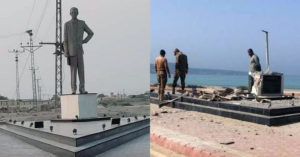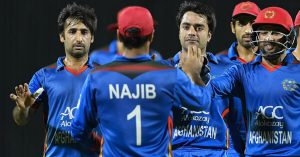Image credits: unama.unmissions.org
With the Afghan Presidential elections forthcoming, as many as 18 Afghan presidential hopefuls have registered their candidacies. In October 2018, we witnessed the third round of parliamentary elections with pervasive rigging and mismanagement. This year we are about to take part in the fourth term of Presidential elections, which are to be held this July following a three-month postponement against the prior schedule. However, based on popular belief, the 2019 election promises to be no different than the previous ones because everyone thinks that as always the inevitable fraud would again mar the election and it might further destabilize the country if past lessons are ignored.
On top of this pessimistic outlook towards polls, our presidential contenders’ political stumbles right at the outset of electoral registration are disappointing. Besides, the managing task of 18 presidential hopefuls might give the electoral bodies – The Independent Election Commission (IEC) and the Independent Electoral Complaints Commission (IECC) – an even more tough time to transparently carry out the polls and thus this necessitates the bodies’ absolute reform and extreme effort to cope with it.
The preparation for the polls began with plenty of blunders and peculiar jokes, hurting the already damaged image and credibility of elections in Afghanistan. They are no less than comedy scenes. General Abdul Rashid Dostum, the incumbent first vice president, mistakes his running mate’s (Esmat Karzai) name for Hashmat Khalil Karzai during his speech on joining Dr. Abdullah’s electoral ticket. But he, in order to offset the embarrassment, says it doesn’t matter because all the names are alike and that there are a hundred Karzais.
At the ceremony announcing his candidacy, CEO Abdullah Abdullah is surprised by Gulbadin Hekmatyar’s joining of the presidential race. “What is really interesting and which we all welcome is the running for the presidency by an erstwhile warlord, who was fighting Afghans five years ago,” he remarked. This ironic commentary reminds one of the popular Pashto proverb, which goes: “Sieve tells the water vessel you have two holes in you.”
Adding to this political melodies, running mate of Hanif Atmar, Younus Qanuni, utters, “adding to the talks of Excellency Karzai […]” while actually referring to Atmar, who is standing next to him. The Presidential hopeful cuts him short and whispers in his ears to correct him. Subsequently, all of them laugh just like a spectacular joke in a sitcom.
Another stunning scene is when Mohaqiq, the second running mate on Atmar’s team, starts with a weird joke and loud laughing at the beginning of his speech. He makes the joke about Mullahs in order to, as he said, cheer up the crowd and supposedly awake them from sleep.
Hakeem Torzan, another presidential candidate, when asked by Ariana News moderator what positions he will give Abdullah and Ghani if succeeded, he replies angrily that he won’t even keep them as tea making servants.
These are just a few examples. The social media people are having a great time making jokes and spreading scandals after seeing this unbelievable performance from many of the running mates, who wish to be entrusted with the reign of the country. We have already gotten a sneak peek at idiocies to come from that many presidential hopefuls. There is little doubt that there are many more missteps awaiting us in the coming five months until the presidential polls in July. What the electoral bodies could do to manage these candidates and possibly avoid fraud in the elections?
Lessons should be learned from past elections
The fledgling democracy is highly vulnerable in Afghanistan and it is likely to sustain yet another blow by electoral fraud – given the track record of the country when it comes to elections – unless the past lessons are heeded. Otherwise, the election might even further destabilize the country. In 2014 we saw the presidential election plunging into crisis after CEO Abdullah wouldn’t accept the results because of what he said were ‘blatant fraud’. It gave rise to instability but it wasn’t before long when the US secretary of state, John Kerry, had to intervene and strike a political bargain of 50-50 among the rivals. Similarly, due to election irregularities, full results of the last parliamentary election are yet to be announced. Moreover, the decision of IECC declaring the Kabul votes invalid in December 2018 but immediately recanting its statement after coming under fire is also an example of weird dramatic shifts.
Following that chaotic election last October, the President sacked officials of both the electoral bodies on February 12. This decision by the president is laudable and should be kept up; however, a possible approach to avoid and prevent fraud in the future is picking up more reliable and eligible commissioners this time. The selection process should be conducted swiftly in order not to impede the polls and also meet the schedule. The recruitment shouldn’t be done only by the leadership of the NUG but with observation from a third party as well.
Considering the bitter experiences of the previous elections and now that electoral bodies have to manage these many seemingly unworthy presidential strongmen, a concentrated push is needed by the electoral bodies to regain people’s trust and somehow give them the incentive to take part in the upcoming vote. It’s all upon the electoral bodies now to ensure a fraud-free election which means that it dictates structural reforms within the bodies.
The government should ask for more help from the international community in terms of rigorous monitoring. Moreover, for bringing reforms, the government and commissions should debut the use of technology in the elections to ensure better transparency and credibility. This approach must be taken seriously and the experience of the last parliamentary fiascos in terms of biometrics and mismanagement of ballots should not be repeated again. Therefore, preparations should be in full swing in order to achieve this overhaul of the electoral bodies and reforms prior to the upcoming elections. If these reforms are brought, Afghans might comfortably exercise their legitimate right to suffrage and might choose their candidate of choice without any fear of fraud in the best-case scenario.



